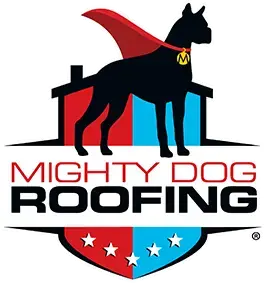Don’t Hire a Roofing Contractor in South Jersey Before You Read This
Before you begin any roofing work on your South Jersey home—whether it’s roof repairs, roof insurance claims, or a full roof replacement—you need to know how to hire the right contractor. Roof scams, vague roofing estimates, and improper installation are more common than most homeowners realize. Making the right choice protects your home, your wallet, and your long-term peace of mind.
This guide explains how to choose a trustworthy roofing company, how roof insurance claims really work, and how to avoid common traps that lead to insurance fraud, poor workmanship, or premature roof failure.
Why Choosing the Right Roofing Contractor Matters
Your roof is one of the most important systems protecting your home. South Jersey weather brings heavy rain, high winds, humidity, freeze-thaw cycles, and summer heat—all of which stress roofing materials.
Hiring the wrong roofing contractor can lead to:
- Leaks and long-term water damage
- Mold in attic spaces
- Rotting roof decking
- Voided manufacturer warranties
- Denied roof insurance claims
- Needing to replace a roof much sooner than expected
Choosing a qualified professional matters as much as the roofing installation itself. That starts with verifying proper insurance, licensing, and documentation.
Step 1: Verify New Jersey Licensing and Insurance
New Jersey requires every roofing contractor to hold an active New Jersey Home Improvement Contractor Registration issued by the Division of Consumer Affairs. If a company cannot show this registration, they legally cannot work on your home.
Ask for:
1. New Jersey Home Improvement Contractor Registration (HIC)
This confirms the roofer is authorized to perform roofing work in the United States and in your state specifically.
2. Proof of General Liability Insurance
This protects your home if something is damaged during the project.
3. Proof of Workers’ Compensation Insurance
This protects you if a worker is injured on your property.
4. A clear written contract
A strong contract lists roofing materials, scope of work, warranties, and cost. If the roofer will not put details in writing, that’s a red flag.
A reputable roofing company—such as Mighty Dog Roofing of South Jersey—provides all documentation upfront without hesitation.
Step 2: Look Closely at the Roofing Estimate
A roofing estimate is more important than the price itself. Many homeowners compare only numbers, but details matter far more.
Warning signs of a bad estimate:
- Only one line item (“Replace roof – $XX,XXX”)
- No mention of roofing materials
- No explanation of what will be removed or replaced
- No details about flashing, underlayment, ventilation, or drip edge
- No information about cleanup or disposal
Your roof is a system—underlayment, decking, flashing, venting, shingles, and more must work together. A vague roofing estimate allows a contractor to:
- Reuse old flashing
- Skip ice and water shield
- Use the cheapest materials
- Shortcut key parts of the roof installation
- Charge for items they never install
A high-quality roofing company details every component clearly, including:
- Type of roofing material (e.g., asphalt shingle roof, metal, slate roofs, tile roofs)
- Brand and line of shingles
- Underlayment type
- Number of layers being removed
- Drip edge replacement
- Flashing replacement
- Ridge vent or attic ventilation upgrades
- Waste removal
If you don’t see these details in writing, the estimate is incomplete—and designed that way.
Step 3: Why the Cheapest Price Often Costs the Most
For roofing companies that lowball estimates, cutting corners is the only way to profit. The cheapest option often means:
- Reusing old or rusted flashing
- Not replacing the drip edge
- Using basic felt instead of high-performance underlayment
- Skipping ventilation upgrades
- Installing low-quality shingles
- Hiring untrained subcontractors
This leads to leaks, ventilation failure, and roof systems that fail long before they should.
The right contractor will never compete on “cheapest price.” They compete on:
- Work quality
- Roofing materials
- Transparency
- Warranty
- Roof system performance
Cheap roofs become expensive roofs later.
Step 4: Know How Roof Insurance Claims Really Work
Many South Jersey homeowners experience roof insurance claims after wind or storm damage. But roofing insurance claims do not work like auto claims.
Here’s what homeowners need to know:
1. Your deductible is always your responsibility
No contractor can legally “cover” or “waive” it. If they offer this, they must falsify paperwork, putting you at risk of insurance fraud.
2. Replacement Cost Value (RCV) vs Actual Cash Value (ACV)
- RCV = cost to replace your roof with new materials
- ACV = roof value after depreciation (the “used value”)
Most policies issue ACV first, then release the remaining funds after roofing work is completed.
3. You do not have to get the cheapest estimate
Insurance covers the cost to replace your roof correctly—not the cheapest shortcut.
4. You do not need exactly three estimates
This is an outdated suggestion. What you need is the right contractor, not the lowest number.
5. If you keep the insurance money and skip the roof replacement
Your roof is no longer insured. Future damage will not be covered, and you may pay thousands more later.
Step 5: Five Questions That Reveal a Contractor’s True Quality
Before hiring a roofing contractor in South Jersey, ask these:
- Are you fully licensed and insured in New Jersey, and can you prove it?
- Can you walk me through every roofing material you will use, and is it all in writing?
- Will you replace all flashing, drip edge, and underlayment—or reuse old components?
- Who performs the roofing work—your own crew or subcontractors?
- What workmanship warranty do you offer, and what does it cover?
If they cannot answer clearly, or if their answers change when questioned, trust your instincts.
Why Homeowners Trust Mighty Dog Roofing of South Jersey
As a fully licensed and insured New Jersey home improvement contractor, Mighty Dog Roofing of South Jersey provides:
- Verified NJ HIC registration
- Proper insurance
- Detailed written roofing estimates
- High-quality roofing materials
- Honest recommendations for repairs or replacing your roof
- Clear processes for roof insurance claims
- Full roof replacement performed by trained, supervised installers
- A roofing system designed for long-term durability
- Warranties backed by national manufacturers
- Competitive financing options
Our goal is simple: to protect your home with a roof that lasts long after the project is complete.
Frequently Asked Questions About Hiring a Roofing Contractor in South Jersey
What paperwork should I ask for before hiring a roofer?
You need their New Jersey Home Improvement Contractor Registration, liability insurance, and workers’ compensation.
Does the cheapest roofing estimate save money?
Usually not. The cheapest estimates for roofing projects often leave out materials or steps you can’t see, which shortens the lifespan of your roof system.
Do I need multiple roofing estimates?
Not necessarily. You need one complete, detailed roofing estimate from a contractor you trust.
Can a roofer pay my deductible for an insurance claim?
No. This is considered insurance fraud. Avoid any roofing company that suggests it.
How do I know it's time to replace a roof?
Damaged shingles, leaks, sagging roof decking, and storm damage are common signs. A professional roof inspection can confirm the condition of your roof.



